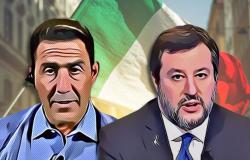Loading player
South African President Cyril Ramaphosa has said his party, the African National Congress (ANC), will seek to form a unity government with opposition parties.
The decision was expected due to the results of last week’s parliamentary elections, in which the ANC performed very poorly compared to the past, stopping at less than 50 percent of the votes for the first time since free elections were held in South Africa. This is very relevant news because since 1994, that is, since the first democratic elections in the country after the end of apartheid, the ANC – which is Nelson Mandela’s party – had always governed alone.
The ANC obtained around 40 percent of the votes and has 159 seats, 42 less than needed to have a majority in parliament, which is made up of 400 seats and elects the country’s president. In the 2019 elections, the ANC won with 57.5 percent of the vote, a steady decline after 2004, when it achieved its best result (76 percent). That the party would lose its absolute majority was an expected result, due to the discontent of the South African population which had increased greatly in recent years also due to the great difficulties that the ANC had had on various issues: from the management of crime to corruption scandals , from the economy to the provision of basic services to citizens.
The second most voted party in the elections was the Democratic Alliance (AD), which is of liberal inspiration, is supported mainly by the white minority and obtained 21.8 percent, a result in line with the last two elections. The third party, with 14.6 percent, was uMkhonto weSizwe (“spear of the nation”, abbreviated to MK), the personal party of the 82-year-old former president of South Africa Jacob Zuma, expelled from the ANC in January. from which he had in any case distanced himself, accusing him of having moved too much to the center during the mandate of the current president Cyril Ramaphosa.
Ramaphosa, who is 71 years old and has been president of South Africa since 2018, has proposed that all opposition parties join the national unity government, promising them representation and ministers in the new executive.
Ramaphosa’s goal is obviously to be elected president again, in exchange granting important roles such as that of vice president to members of opposition parties. At the moment, however, it is not at all certain that his proposal will lead to any results: several opposition politicians in recent days had already ruled out the possibility of governing with the ANC. AD leaders, for example, had spoken of the idea of forming a government with the ANC and MK as “a coalition of the Apocalypse”. MK representatives in turn said they had begun talks with the ANC, which will continue in the coming days.
The South African parties must find a government agreement within 14 days of the announcement of the results: the deadline in this case is 16 June, when the parliament with the newly elected deputies will have to meet for the first time and vote for the president. If he fails to do so within 30 days, new elections will have to be called.






